-
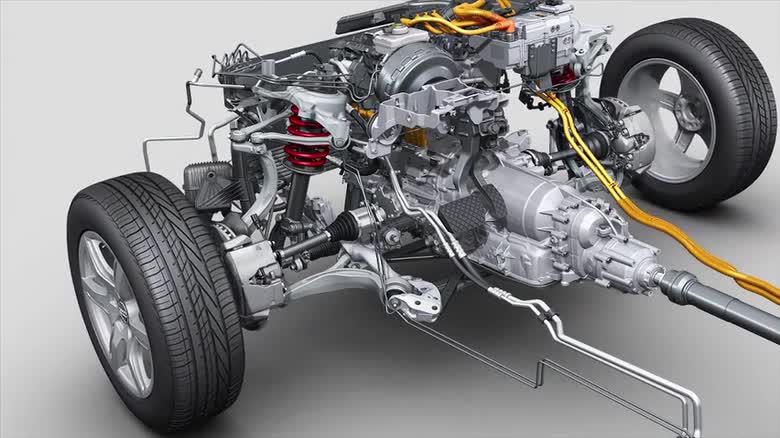
Brake system in the Audi Q5 hybrid quattro Drive management
Drive management
Electric motors offer interesting possibilities for intelligent drive management. Audi is making use of these in two fields of technology – energy recovery and quattro permanent all-wheel drive.
- Available media:
-


-
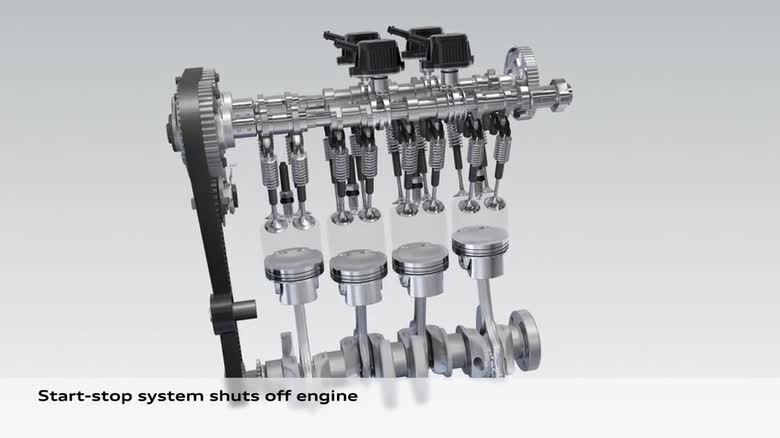
Audi Q3 cylinder on demand (COD) Rightsizing
Rightsizing
Audi is driving forward progress in its gasoline engines. The term Rightsizing incorporates a host of innovative technologies. The key is to design engines with the optimum combination of displacement, power and torque delivery, fuel consumption and operating characteristics. Cylinder deactivation in the 4.0 TFSI is one example.
- Available media:
-

-
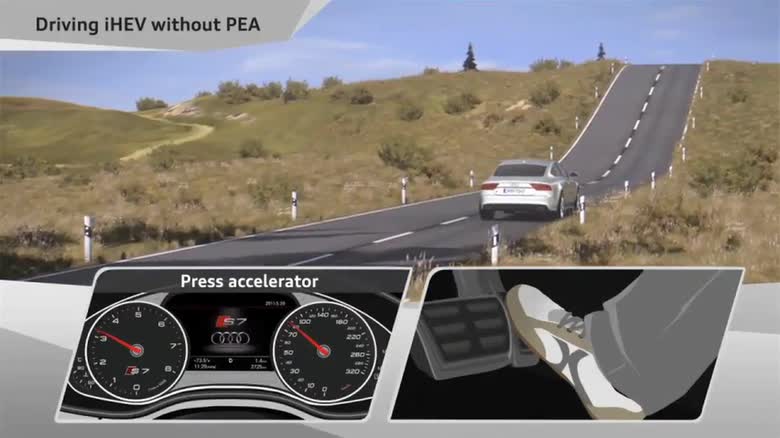
iHEV system Predictive efficiency assistant
Predictive efficiency assistant
Audi is working on new, intelligent technologies to reduce fuel consumption even further. The predictive efficiency assistant uses data from the navigation system to enable the car to slow down in an anticipatory manner.
- Available media:
-


-
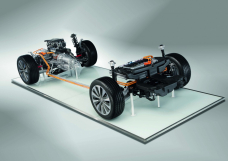
Hybrid technology
Hybrid technology
Audi offers full hybrids with lithium-ion batteries in three vehicle classes. The A6 hybrid (Combined fuel consumption in l/100 km: 6.2; Combined CO2-emissions in g/km: 145)**, the A8 hybrid and the Q5 hybrid quattro (Combined fuel consumption in l/100 km: 6.9; Combined CO2-emissions in g/km: 159)** use a parallel driveline – a highly efficient concept.
- Available media:
-

-
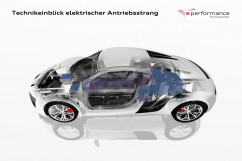
e performance research project
e-perfomance
research projectAudi is systematically working out all aspects of electric mobility from the ground up. The e performance research project – a think tank within the company – has developed a modular component system for electrically powered vehicles. This has resulted in a sporty research vehicle, the F12, in the framework of a research project sponsored by the German Federal Ministry of Education and Research (BMBF).
- Available media:
-

-
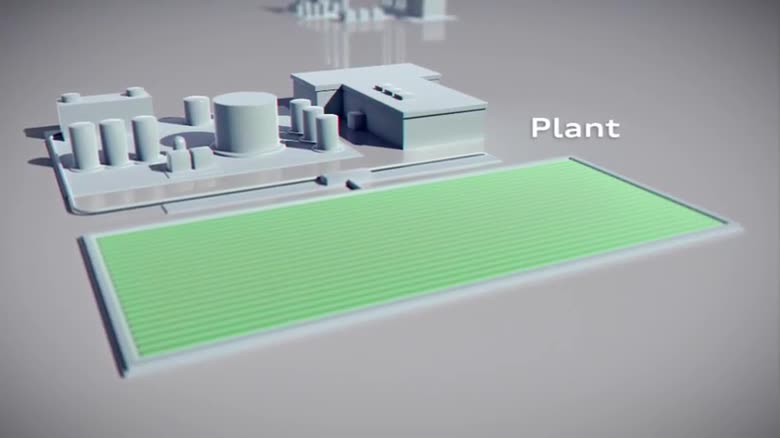
Video: e-fuels Audi e-diesel and e-ethanol
Audi e-diesel and
e-ethanolAudi is promoting the development of new CO2-neutral fuels.** The underlying technology is completely new: Microorganisms utilize solar energy to produce synthetic ethanol and synthetic diesel from carbon dioxide and water.
The problem has been familiar for a long time, but it has yet to be solved: The combustion of conventional petroleum fuels pollutes the atmosphere by releasing carbon dioxide into it. Ethanol and diesel made from renewable raw materials such as maize and rapeseed generally achieve a better environmental balance, because the plants have already previously absorbed the CO2 that is released when they are combusted.** But such fuels are costly and compete with food agriculture – so they do not represent a long-term solution in a world whose population continues to grow increasingly rapidly.- Available media:
-


-
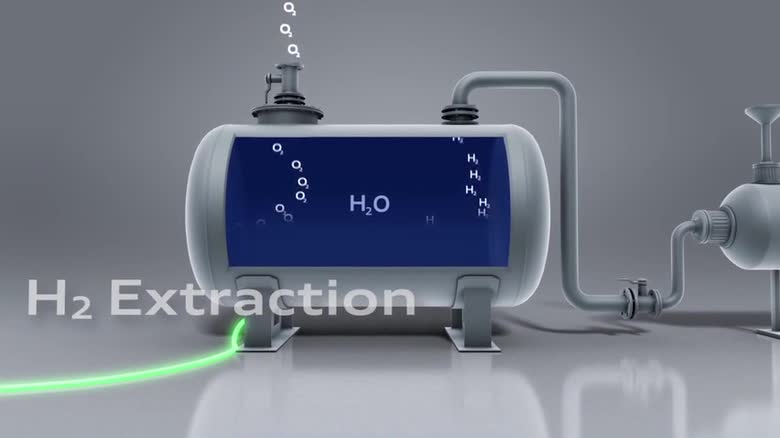
e-gas project Audi e-gas
Audi e-gas
By 2013, the Audi a-gas project will make the brand with the four rings the first automaker worldwide to have built a whole chain of sustainable energy sources.
- Available media:
-


-
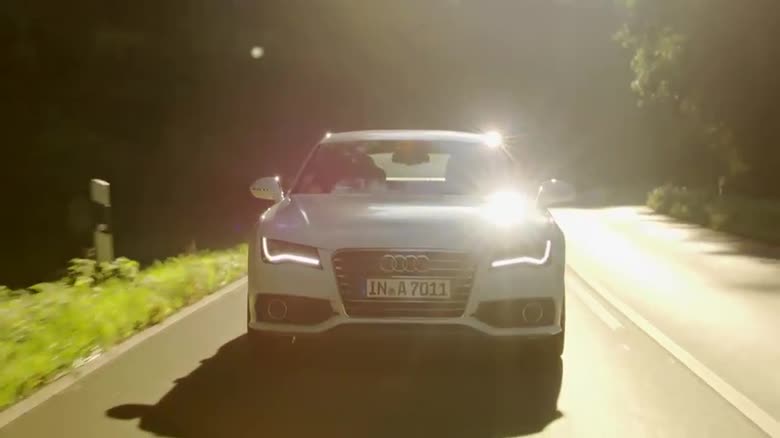
Umweltbilanz Ecobalance
Ecobalance
Audi creates an ecobalance for each new model that evaluates all phases of its lifecycle. The brand’s lightweight and efficient models are particularly effective during the operating phase – thanks to know-how in ultra-lightweight design and drive technology.
Ecobalance, also known as life cycle analysis or life cycle assessment (LCA), analyzes the environmental impact of a product throughout its entire lifecycle. It serves as a quantitative evaluation of ecological aspects such as the emission of greenhouse gases (including CO2)**, energy consumption, acidification or summer smog. In compiling ecobalances, Audi uses a standardized procedure in accordance with ISO 14040.- Available media:
-

-
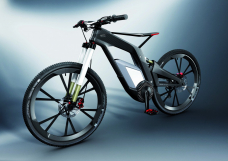
Audi e-bike Wörthersee
Audi e-bike Wörthersee
The Audi e-bike Wörthersee is a high-performance sports machine for sporty people. Its design reflects the concentrated dynamism of the brand, with CFRP playing a major role in its ultra-lightweight design principle.
The changed role that the car will adopt in the mobility of tomorrow is creating space in the world’s major cities for new means of transport – for lean, lightweight and efficient vehicles with two, three or four wheels, for e-pedelecs, e-skateboards, e-trikes or even e-quads. Audi designers are picking up on this trend and transferring it into the brand’s progressive design language.- Available media:
-

-
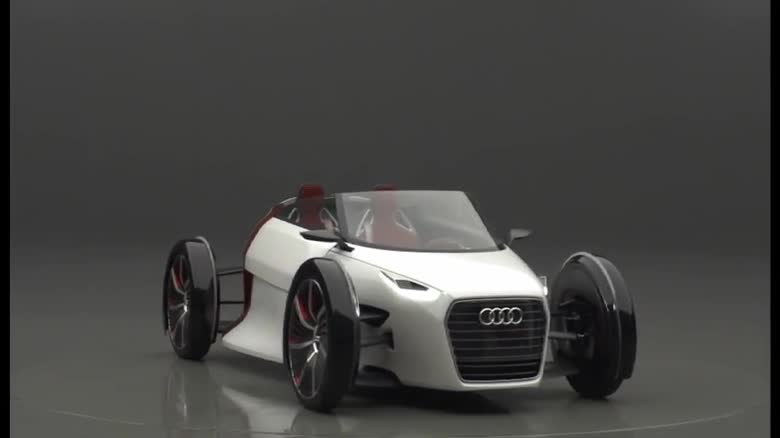
Audi urban concept spyder Audi urban concept Spyder
Audi urban concept Spyder
The Audi urban concept Spyder technology study is a showcase for the mobility of tomorrow. The electrically driven show car brings together elements of a race car, a roadster, a fun car and a city car.
- Available media:
-

-
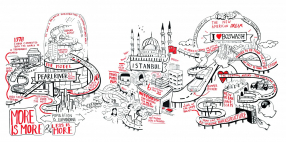
Audi Urban Future Award
Audi Urban Future Award
An important aspect of the Audi Urban Future Initiative is the award established in 2010. With a prize of 100,000 Euros, it is Germany’s most highly endowed architecture competition. This year, the award is being offered for the second time and is centered on the question of how mobility can become an engine for urban development. The five participating architecture and urban planning firms are called CRIT (Mumbai), Höweler & Yoon Architecture (Boston/Washington), NODE Architecture & Urbanism (Pearl River Delta), Superpool (Istanbul) and Urban-Think Tank (São Paulo).
- Available media:
-
